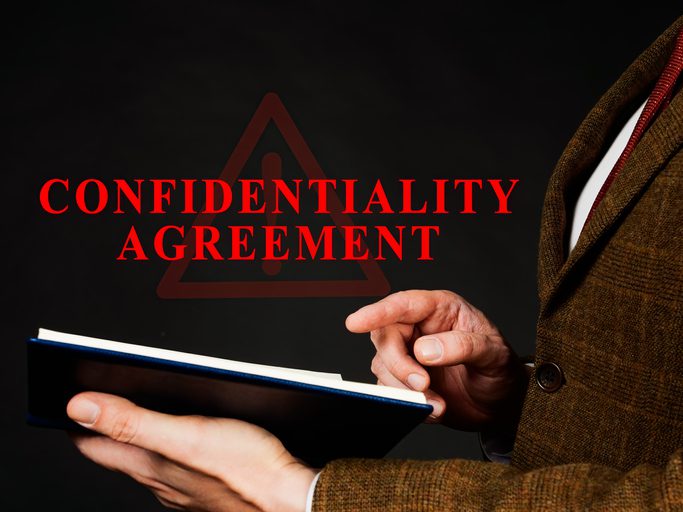What employees need to know about NDAs and confidentiality clauses

Authored by DAS
Non-Disclosure Agreement (NDAs) are becoming increasingly prevalent in any professional environment, as more and more people are either working from home, or at the very least settled in a “hybrid” working situation, which entails remote working for part of the week.
As a result, the UK’s workforce is being split with commercial information is being handled and stored in different locations. Under these circumstances, NDAs are a good option for employers to ensure confidentiality of sensitive information is maintained. But what is a Non-Disclosure Agreement? What do they entail? What do employees need to know about them?
Ryan James, from DAS Law, takes an in depth look at Non-Disclosure Documents.
What is a non-disclosure agreement (NDA)?
In general, a non-disclosure agreement is a legally binding contract between parties to restrict or prevent the disclosure of confidential information.
What are they generally used for and who can benefit?
The restriction of disclosing information can benefit both the employee and employer.
Traditionally, non-disclosure agreements and confidentiality clauses are used in a commercial context to protect trade secrets and the interests of the business. To a lesser extent, they are also used in settlement agreements and employment contracts.
In employment contracts, confidentiality clauses will usually seek to prevent the unauthorised disclosure by the employee of confidential information belonging to the employer during employment and following termination. Whilst this is also applicable to a settlement agreements, a settlement agreement will usually contain mutual confidentiality provisions intended to prevent the parties disclosing information about the nature of the matter to which the settlement agreement relates and the existence and terms of the settlement agreement itself.
Should employees have an NDA agreement reviewed by solicitor before they sign it?
Yes. Having an NDA reviewed by a Solicitor or by a Charted Legal Executive with professional indemnity insurance prior to signing is advisable.
Can employees make changes or ask for additional clauses or amendments to be added to an NDA?
Yes. Negotiation would be expected as part NDA discussions. However, due to the nature of an NDA – as with any contract – any changes must be mutually agreed to be binding.
Input from the Advisory, Conciliation and Arbitration Service (ACAS)
In order to limit the use of confidentiality clauses and non-disclosure agreements, ACAS states that internal procedures such as whistleblowing, disciplinary and grievance procedures should be followed initially. In the event that the dispute remains unresolved, NDA’s should be considered on case-by-case basis and consideration should be had for whether it will cause any serious moral or ethical issues or any other negative outcomes.
ACAS currently stipulate that NDAs can be appropriate under certain circumstances, such as;
confidentiality of details of an agreement.confidentiality over existence of an agreement.to protect information belonging to the organisation.protection of identity.keep details about the organisation confidential.preventing derogatory statements from being made about the organisation and its service, its workers, or client and customers.in order to protect someone if the details of a dispute became known.
Whilst the legislature has not yet made any changes to the current legislation, in line with the anticipated changes regulatory bodies and commissions have issued updated guidance to limit the use of NDA’s and confidentiality clauses where such provisions would be unethical and immoral, particularly in relation to cases of unlawful discrimination and harassment. As previously stated the timeline for the legislative changes remains unknown.
About DAS Householdlaw
DAS Householdlaw can help policyholders create a range of documents such as ready-to-sign contracts (with built in e-signature functionality), agreements, policies and letters.
Customers can also access guidance on a wide range of legal matters such wills and probate, consumer rights, property lettings, divorce, contesting parking tickets, holiday and flight compensation, neighbour disputes and identity theft & fraud.
How to register
Visit dashouseholdlaw.co.ukEnter the voucher code found in your policy documentation into the ‘First time using DAS Householdlaw?’ box and click ‘Validate Voucher.Fill out your name, email address and create a password, and then validate the confirmation email sent out.





